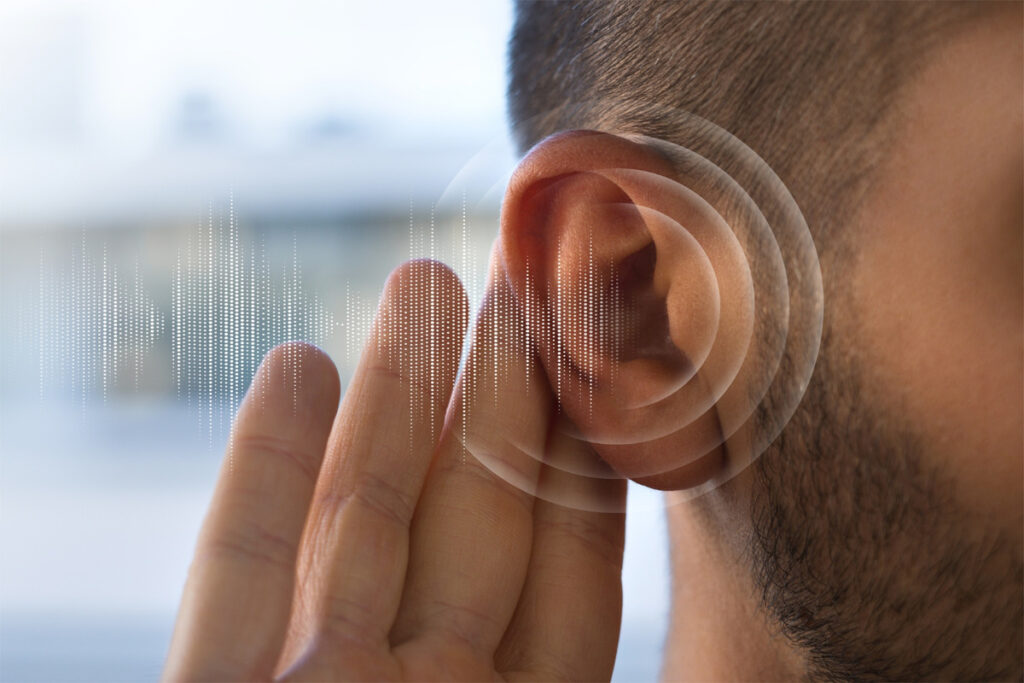Can high blood pressure cause tinnitus?
It’s a question many people ask when they experience ringing in their ears alongside cardiovascular issues.
While tinnitus has multiple causes, research suggests that high blood pressure may play a significant role in its onset and severity.
Can High Blood Pressure Cause Tinnitus?
Yes, high blood pressure can cause tinnitus, or at least worsen its symptoms.
When your blood pressure is elevated, it increases the force of blood against the walls of your arteries.
This can affect blood flow to the inner ear, a region that relies on a steady and precise supply of oxygen-rich blood.
Disruptions in this flow can lead to auditory disturbances, including ringing, buzzing, or hissing sounds commonly associated with tinnitus.
Understanding Tinnitus: Causes and Symptoms
Tinnitus is the perception of sound in one or both ears without an external source.
It affects approximately 15% to 20% of people in the United States.
Common symptoms include ringing, buzzing, roaring, clicking, or hissing noises.
While tinnitus is often linked to hearing loss, it can also result from ear injuries, exposure to loud noises, or underlying health conditions like hypertension.
How High Blood Pressure Affects Your Ears
The auditory system is highly sensitive to changes in blood flow.
Elevated blood pressure can damage small blood vessels throughout the body, including those in the cochlea, the spiral-shaped organ in the inner ear responsible for translating sound vibrations into nerve impulses.
This vascular damage can reduce cochlear function and increase the likelihood of tinnitus.
Additionally, high blood pressure can exacerbate existing auditory issues and make tinnitus more noticeable, particularly in quiet environments.
Other Risk Factors That Link Tinnitus and Cardiovascular Health
Several cardiovascular factors can contribute to tinnitus beyond just high blood pressure.
These include atherosclerosis (narrowing of the arteries), high cholesterol, and poor circulation.
Stress and anxiety, common among people with heart conditions, are also known to heighten tinnitus perception.
Smoking, obesity, and a sedentary lifestyle further increase the risk of both hypertension and tinnitus, creating a cycle that can be difficult to break without intervention.
When to See a Doctor About Tinnitus and Blood Pressure
If you experience sudden or persistent tinnitus, especially in conjunction with high blood pressure, it’s important to consult a healthcare professional.
A physician can evaluate your cardiovascular health and refer you to an audiologist or ENT specialist if needed.
Early diagnosis and treatment can help manage symptoms more effectively and reduce long-term complications.
Lifestyle Tips to Manage Both Conditions
Managing your blood pressure can also alleviate tinnitus symptoms.
Start by adopting a heart-healthy diet rich in fruits, vegetables, lean proteins, and whole grains.
Reduce sodium intake and avoid stimulants like caffeine and nicotine, which can spike blood pressure and exacerbate tinnitus.
Regular physical activity, stress management techniques such as meditation or yoga, and adequate sleep are all essential for maintaining vascular and auditory health.
Natural Support for Tinnitus Relief
While lifestyle changes and medical treatment are foundational, some individuals find additional relief through natural supplements.
Sonus Complete is a 100% natural dietary supplement designed to support auditory health and help alleviate tinnitus symptoms. Its formula includes antioxidants, anti-inflammatory agents, and vasodilators that may enhance blood flow to the ears and protect neural pathways.
Ingredients like hibiscus, olive leaf, garlic, and B vitamins are known for their potential benefits in promoting neurological and cardiovascular balance.
If you’re struggling with tinnitus and suspect high blood pressure may be a contributing factor, consider addressing both conditions in tandem.
Sonus Complete offers a holistic approach to auditory wellness and could be a valuable addition to your routine.
Visit the official website to learn more and explore whether this natural solution is right for you.









